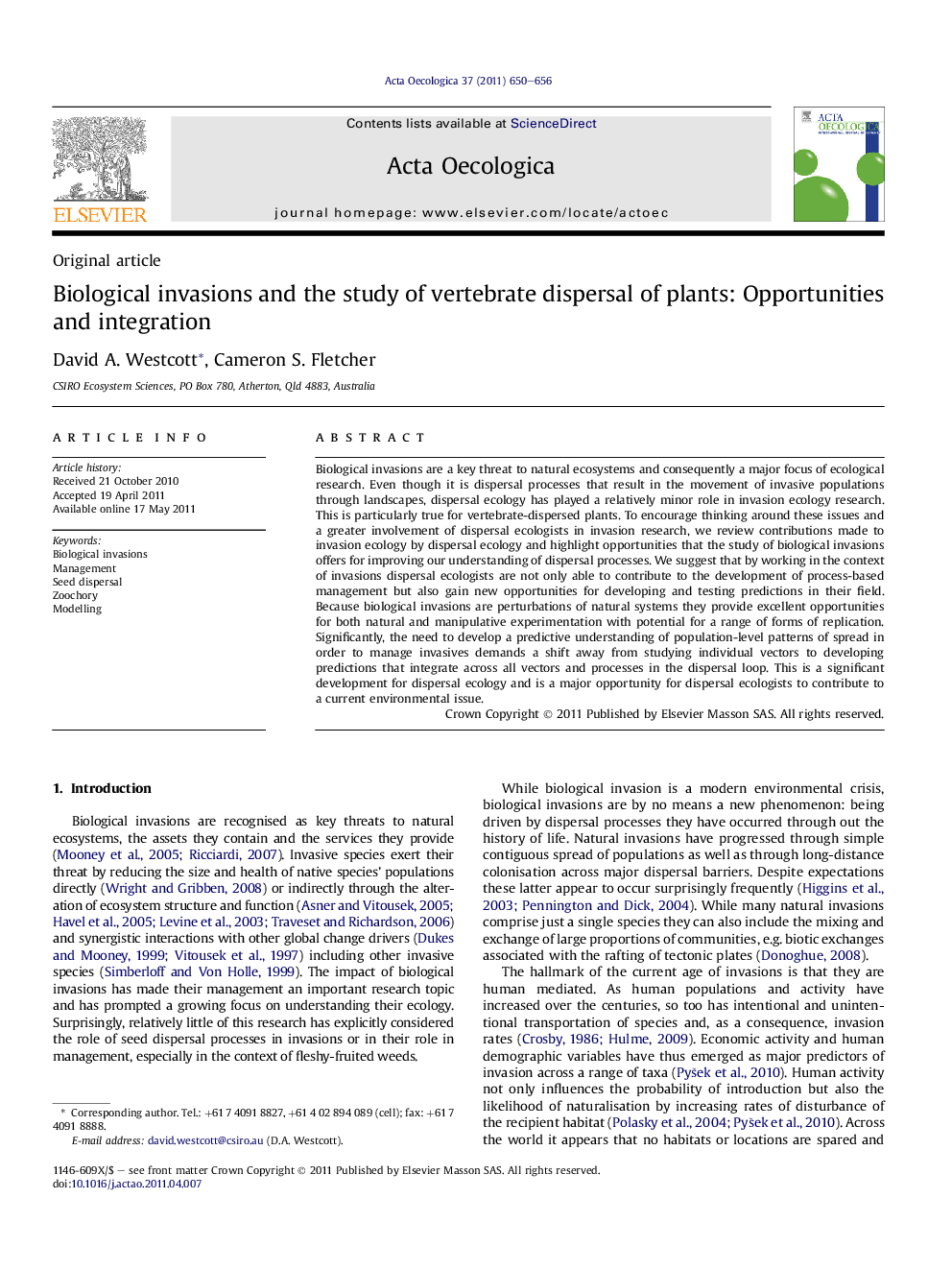| Article ID | Journal | Published Year | Pages | File Type |
|---|---|---|---|---|
| 4381356 | Acta Oecologica | 2011 | 7 Pages |
Biological invasions are a key threat to natural ecosystems and consequently a major focus of ecological research. Even though it is dispersal processes that result in the movement of invasive populations through landscapes, dispersal ecology has played a relatively minor role in invasion ecology research. This is particularly true for vertebrate-dispersed plants. To encourage thinking around these issues and a greater involvement of dispersal ecologists in invasion research, we review contributions made to invasion ecology by dispersal ecology and highlight opportunities that the study of biological invasions offers for improving our understanding of dispersal processes. We suggest that by working in the context of invasions dispersal ecologists are not only able to contribute to the development of process-based management but also gain new opportunities for developing and testing predictions in their field. Because biological invasions are perturbations of natural systems they provide excellent opportunities for both natural and manipulative experimentation with potential for a range of forms of replication. Significantly, the need to develop a predictive understanding of population-level patterns of spread in order to manage invasives demands a shift away from studying individual vectors to developing predictions that integrate across all vectors and processes in the dispersal loop. This is a significant development for dispersal ecology and is a major opportunity for dispersal ecologists to contribute to a current environmental issue.
► Study of biological invasions and of dispersal have occurred largely in isolation of each other. ► Different imperatives for the two fields have driven divergent approaches to similar issues. ► Bridging the gap between the fields will provide significant scientific and management benefits.
